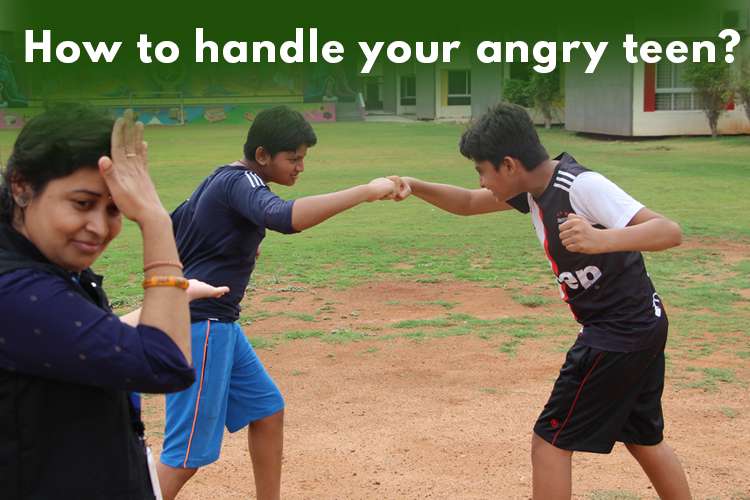Dealing with an angry teen can be an overwhelming experience. As parents, it’s natural to feel powerless and unsure of how to handle the situation. But it’s important to remember that anger is a natural emotion, and it’s a sign that something is bothering them. As a responsible adult, it’s essential to handle the situation calmly and help your child navigate through their emotions.
Effective ways to handle your angry Pubescent:
1. Listen with complete attention –
One of the most important things you can do when your teen is angry is to listen to them. Try to understand what’s causing their anger, and let them know that you’re there to support them. It’s crucial to avoid interrupting or dismissing their feelings, as this can cause them to feel unheard and ignored. Give them space to express their emotions and try to validate their feelings. This will help build trust and open communication between you and them.
2. Avoid reacting with anger –
It’s natural to feel angry when your child is lashing out, but it’s important not to react with anger yourself. This will only escalate the situation and make it more difficult to resolve. Instead, try to remain calm and respond to your child with empathy and understanding. This will help them feel heard and supported, which can diffuse their anger and make it easier to find a solution. Often their anger is centered around differences in opinion or priorities.
3. Help them identify the source of their anger –
Sometimes, they can become overwhelmed by their emotions, and they may not understand why they’re feeling angry. As a parent, you can help them identify the source of their anger. This will help them to develop coping strategies and learn how to manage their emotions in the future. Encourage them to talk about their feelings and try to help them see the situation from a different perspective.
4. Teach them coping strategies –
Anger is a natural emotion, but it’s important to teach them how to cope with their anger in a healthy way. Encourage them to try different coping strategies, such as deep breathing, meditation, or physical exercise. These activities can help them to relax and reduce their stress levels. It’s also important to teach them how to communicate effectively, as this can help them resolve conflicts calmly and constructively.
5. Set boundaries and consequences –
While it’s important to listen actively to their concerns to help them manage their anger, it’s also important to set boundaries and consequences. Let your pubescent know what behaviour is acceptable and what is not. Be clear about the consequences of their actions, and follow through with them if necessary. This will help them to understand that their behaviour has consequences and encourage them to think before acting.
6. Get professional help if necessary –
If your teen’s anger is leading to significant problems which may affect their future, it may be necessary to seek professional help. A therapist or counselor can help them develop coping strategies and work through their emotions in a healthy way. This can be a valuable resource for both you and your child, as it can help you navigate through the challenges of adolescence.
An angry teen’s outbursts can seem challenging, but by retaining your parental position in the dynamic, these situations can be managed and also become an opportunity for you to bond with your child. Help them with empathy, and examples of your own experiences to show them that some of their experiences are common to everyone, if that’s the case. Help them evaluate the situation and offer them to evaluate the different decisions they might make.
By actively listening to your teen, helping them identify the source of their anger, and teaching them coping strategies, you are setting them up for a lifetime of self-regulation in the face of emotions. Set boundaries and consequences, and seek professional help if necessary. Remember, with patience and persistence, you can help them navigate through their emotions and emerge as a more resilient and confident individual.


